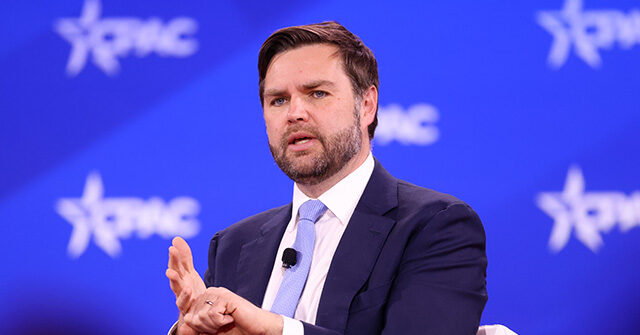The United States was wrong to neuter European power and create vassal states in the 1950s through events like the Suez crisis, Vice President JD Vance has said.
Europe and the United States are indivisible because of their shared culture and history, but Vice President Vance argued in an interview with Unherd that Europe’s relationship is best served by being more self-reliant and even resisting America’s direction of travel when bad decisions are being made.
He told the publication: “It’s not good for Europe to be the permanent security vassal of the United States”.
The Trump White House, particularly Vance, has been open about its qualms about the very real deficiencies in European defence and their position as effective American security clients.
Yet these latest remarks are noteworthy because, until now, not much has been said about how this state of affairs came to be and that it was created largely at the behest of the United States. Vance now says he recognises this as a mistake of previous and historic administrations.
THE SUEZ CRISIS (OPERATION MUSKETEER) 1956 (A 33640) Westland Whirlwind helicopters of the Royal Navy taking the first men of 45 Royal Marine Commando into action at Port Said from HMS THESEUS. Copyright: © IWM. Original Source: http://www.iwm.org.uk/collections/item/object/205187830
Vance cited the Suez crisis of 1956, in which the United Kingdom and France moved to assert their position as global military powers but were slapped down by the United States amid its pursuit of decolonisation. Ultimately, coming so soon after the Second World War, London and Paris were not in a position to push back against Washington and were forced to accept a new position as security clients to America, to greater or lesser degrees over time.
While this unforgiving attitude towards its own allies gave Washington diplomatic leverage in opposing Soviet imperialism, it also served to disengage two of America’s most militarily consequential allies in the long term. This eventually created and contributed to the situation that American voters now oppose, the U.S. as the sole major power on the pro-liberty side of the world and American taxpayers being forced to bear the lion’s share of the burden of defending the West.
When Vance complained in the allegedly leaked Signal chats concerning U.S. strikes on the Houthis about Europe’s inability to protect the Red Sea itself, it is precisely because of decades of American foreign policy that has discouraged or outright blocked European states from having a hand in that region in favour of U.S. hegemony.
But, showing an understanding of how the current geopolitical landscape came to be, the Vice President said Britain and France had been right when they tried to assert their position as global powers in the 1950s to keep European access to the East open through the Suez Canal and — while heavily implied, but not said outright — through developing independent nuclear weapons programmes.
Vance continued that Charles De Gaulle, the prodigiously French-chauvinist leader at the time of these decisions, was a great fan of America, but at the same time “recognised what I certainly recognise, that it’s not in Europe’s interest, and it’s not in America’s interest, for Europe to be a permanent security vassal of the United States… I don’t think that Europe being more independent is bad for the United States — it’s good for the United States.”
“Just going back through history, I think — frankly — the British and the French were certainly right in their disagreements with Eisenhower about the Suez Canal.”
Citing a more recent example, Vance said European states that opposed the Iraq war had been right not to follow the U.S. into a deadly war of choice blindly. He continued: “I think a lot of European nations were right about our invasion of Iraq. And frankly, if the Europeans had been a little more independent, and a little more willing to stand up, then maybe we could have saved the entire world from the strategic disaster that was the American-led invasion of Iraq.”
“I don’t want the Europeans to just do whatever the Americans tell them to do. I don’t think it’s in their interest, and I don’t think it’s in our interests, either.”
Read the full article here


